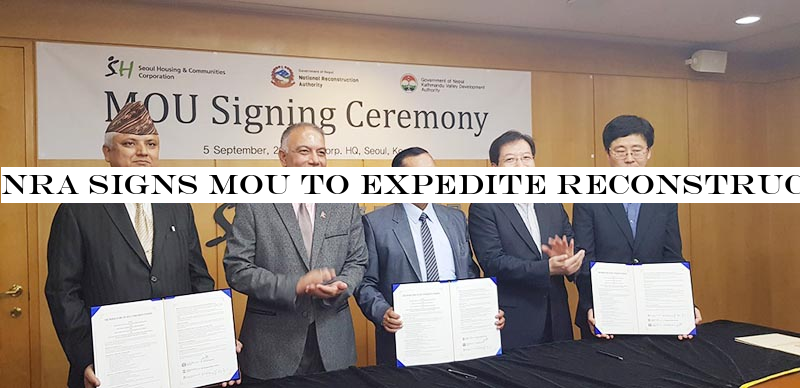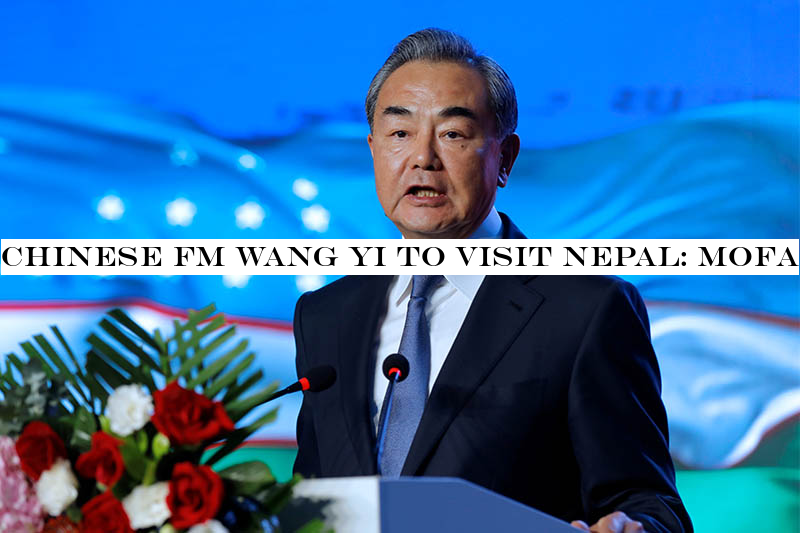Music
Trailers
DailyVideos
India
Pakistan
Afghanistan
Bangladesh
Srilanka
Nepal
Thailand
Iraq
Iran
Russia
Brazil
StockMarket
Business
CryptoCurrency
Technology
Startup
Trending Videos
Coupons
Football
Search
Download App in Playstore
Download App
Best Collections
Nepal
Countries need to expand vaccination, screening, detection and treatment services
Kathmandu, September 6
World Health Organisation urged countries in its South-East Asia Region to accelerate efforts to eliminate cervical cancer by 2030.
Cervical cancer is a major public health problem in the region. In 2018, an estimated 158,000 new cases and 95,766 deaths were reported due to cervical cancer, which is the third most common type of cancer.
Addressing cancer risk factors and reducing its prevalence have been a regional flagship priority since 2014.
All countries in the South-East Asia Region are taking measures for screening and treatment of pre-cancers. Four countries in the region — Bhutan, Maldives, Sri Lanka and Thailand — have introduced human papilloma virus vaccine nationwide, state a press release issued by World Health Organisation.
&Countries need to expand vaccination, screening, detection and treatment services for everyone, everywhere to address the growing problem of cervical cancer,& said Poonam Khetrapal Singh, regional director of WHO South-East Asia, at the seventy second session of WHO Regional Committee in Delhi.
&We need to scale up both our capacities and quality for screening, treatment services and palliative care,& the regional director said.
Vaccination against human papilloma virus, screening and treatment of pre-cancer, early detection, and prompt treatment of early invasive cancers and palliative care are proven effective strategies to address cervical cancer.
Member countries are working towards achieving interim global targets — 90 per cent girls fully vaccinated with human papilloma virus (HPV) vaccine by 15 years of age; 70 per cent women screened with a high-precision test between 35 and 45 years of age, and 90 per cent women identified with the cervical disease receive treatment and care by 2030.
The regional director said there was need to strengthen national cervical cancer control plans, including appropriate strategies and guidelines for immunisation, screening, treatment and care, including palliative care.
&It is necessary to include these services in the essential service packages for universal health coverage to meet the targets,& Khetrapal Singh said.
WHO is prioritising cervical cancer elimination as worldwide cervical cancer remains one of the gravest threats to womenlives.
WHOSouth-East Asia Region comprises 11 Member States — Nepal, Bangladesh, Bhutan, Democratic PeopleRepublic of Korea, India, Indonesia, Maldives, Myanmar, Sri Lanka, Thailand, and Timor-Leste.
The post ‘Accelerate bid to eliminate cervical cancer& appeared first on The Himalayan Times.
- Details
- Category: Nepal
Read more: ‘Accelerate bid to eliminate cervical cancer’
Write comment (96 Comments)Kathmandu, September 6
The government is all set to expedite reconstruction of ancient settlements and development of smart cities in Kathmandu valley, with the technical assistance of South Korea.
A memorandum of understanding to this effect was signed by the National Reconstruction Authority and Kathmandu Valley Development Authority with Seoul Housing and Communities in Seoul, the capital of South Korea, today.
As per the MoU, the SHCS will extend support to the NRA and KDVA for the reconstruction of ancient settlements of Sankhu, Bungmati and Khokana and for development of smart cities in the areas adjoining them.

Speaking at the MoU signing ceremony, NRA Chief Executive Officer Sushil Gyewali said that the MoU would be a milestone to conserve ancient settlements and develop new cities in the valley. Chief Executive Office of SHCS Kim Seiyong said he was happy to share the knowledge and experience gained by South Korea with Nepal for the development of smart cities in Nepal.
A press release issued by the NRA said that SHCS would provide technical assistance to prepare a master plan and detailed project reports of the proposed projects in the first phase. SHCS will assist in institutional development of the NRA and KVDA in order to develop smart cities on the outskirts of the valley.
Earlier, the KVDA had started a study on developing four smart cities in the valley. It has designated four areas in the valleyeast, west, north and south to develop proposed smart cities. The smart cities will span over an area of 130,000 ropanis, with the biggest smart city located in north-east of the valley covering 100,000 ropanis land and the other three cities spreading over 10,000 ropanis, each.
The biggest smart city will stretch from Nagarkot to Talkot road, Jorpati, Mulpani cricket ground in Shankhu, Bhaktapur Purano Bato and Nepali Military Academy in Bhaktapur. The second smart city will cover Gundu and Balkot area. The third smart city will comprise Ranikot, Bhaisepati, Khokana, Bungmati and Chhimti. The fourth smart city will include Samakhusi, Tokha and the areas of Balaju by-pass, Kavresthali, Greenland Chowk.
The post NRA signs MoU to expedite reconstruction appeared first on The Himalayan Times.
- Details
- Category: Nepal
Read more: NRA signs MoU to expedite reconstruction
Write comment (100 Comments)Kathmandu, September 6
If laboratory tests carried out at Sukraraj Tropical and Infectious Disease Hospital today are anything to go by, roughly 50 per cent of those who visit the hospital with fever and muscle pain are dengue-infected.
According to the hospital, of the 372 blood tests done today 175 tested positive for dengue. &There has been a significant rise in the number of dengue infected patients at the hospital. Unless people are aware and start working on their own, it is difficult to prevent the infection,& said Anup Bastola, spokesperson and consultant tropical medicine physician at Sukraraj Tropical and Infectious Disease Hospital .
With the rise in the number of patients at the hospital, it has started providing services to patients from a separate fever unit from Tuesday.
&There are at least 300 fever patients visiting the new unit of the hospital every day,& said Bastola. However, one should understand that every fever case is not dengue and every dengue is not fatal, he added.
Dengue virus is transmitted to humans when female Aedes aegypti mosquito bites a person. It is highly likely to bite early in the morning or before dusk.
&As there was an early pre-monsoon in the country it gave a favourable environment for the mosquitoes to breed. Mobility of people to and from dengue affected areas is a major cause for the rise of infection,& said Bastola.
There is a growing concern from various stakeholders on dengue prevention. Fever clinics have also been started at various hospitals in the country. Local levels should take initiative if we are to prevent dengue. We must keep our surroundings clean to help prevent mosquitoes from spreading,& said Epidemiology and Disease Control Division Director Bibek Kumar Lal.
Mosquitoes that cause dengue also lay eggs in water collected in flower pots, bottles, empty cans and air conditioners, according to Lal. They also lay eggs in places where rainwater gets collected, Lal added.
Symptoms of dengue include high fever, severe headache, pain behind eyes, pain in muscles and bones, rashes and back pain.
We have sent additional budget to at least 25 local levels across the country for dengue prevention. It has been quite difficult to create atmosphere of co-ordination among the three tiers of government. If we are to prevent dengue from spreading, then we must have a proper communication and co-ordination among three levels of the government.
We will be discussing further on plans and actions immediately upon the arrival of health minister tomorrow, said Mahendra Shrestha, spokesperson for Ministry of Health and Population.
The post 175 persons test positive for dengue in a day at STIDH appeared first on The Himalayan Times.
- Details
- Category: Nepal
Read more: 175 persons test positive for dengue in a day at STIDH
Write comment (95 Comments) Kundali Bhagya 5th September 2019 Episode VideoLink: https://trailer.ecroaker.com/component/search/?videoid=dR_9YiDAH9w
Kundali Bhagya 5th September 2019 Episode VideoLink: https://trailer.ecroaker.com/component/search/?videoid=dR_9YiDAH9w- Details
- Category: Nepal
Read more: Kundali Bhagya 5th September 2019 Episode
Write comment (90 Comments)Kathmandu, September 6
The Supreme Court today stayed the Institute of MedicineMBBS entrance exam scheduled for tomorrow.
A single bench of Justice Tej Bahadur KC issued the order in response to a writ petition filed by Aayush Ojha, Shivani Chaudhary, Neha Das, Hikmat Sunar and Jivan Neupane against the IoM, other medical institutions and the government.
The petitioners have named the Medical Education Commission, Ministry of Education, Science and Technology, IoM, Tribhuvan University, Patan Health Sciences Academy, BPKIHS and Kathmandu School of Medical Sciences as defendants.
The SC stated it was staying the IoM entrance exam planned for September 7 as issues raised by petitioners were related to provisions of the Medical Education Act and needed to be settled after hearing arguments from both the sides. The SC also ordered both the sides to present their arguments on September 11.
In the writ petition filed on Wednesday, the petitioners argued that the said medical institutions had planned to conduct MBBS entrance exams without allocating 75 per cent scholarship seats — a mandatory provision of the newly passed Medical Education Act.
The new act states that the objective of the law was to ensure geographical balance and social justice and institutional accountability.
The petitioners have said that BPKIHS allocated only 30 seats for scholarship out of 100 seats. Even its admission booklet states that it will make available only 33 seats for scholarship.
Kathmandu University has not stated how many seats it will make available for scholarship. Patan Health Science Academyadmission booklet states that it will make available 15 per cent seats for scholarship.
IoM has also not stated how many scholarships it will provide.
Meanwhile, TU officials held an emergency meeting and decided to postpone MBBS entrance exam scheduled for tomorrow. IoM Dean Jagadish Agrawal said bachelor level entrance exams scheduled between September 7 and 11 were also put off.
The post Supreme Court stays IoMMBBS entrance test appeared first on The Himalayan Times.
- Details
- Category: Nepal
Read more: Supreme Court stays IoM’s MBBS entrance test
Write comment (93 Comments)
FILE: Chinese Foreign Minister Wang Yi gives a speech as he attends the opening ceremony of the new embassy of Uzbekistan in Beijing, China, August 19, 2019. Photo: Reuters
KATHMANDU: The Ministry of Foreign Affairs (MoFA) on Friday confirmed the two-day official visit of Chinese Foreign Minister Wang Yi.
Issuing a press statement today, the diplomatic mission in Kathmandu said the State Councilor and Minister for Foreign Affairs of the PeopleRepublic of China Wang Yi is scheduled to visit Nepal from September 8 to 10.
During Wang Yistay in Nepal, he will call on President Bidya Devi Bhandari and Prime Minister KP Sharma Oli.
Visiting Chinese Foreign Minister will also hold delegation-level bilateral talks with his Nepali counterpart Pradeep Kumar Gyawali on Monday, according to the statement.
State Councilor and Minister for Foreign Affairs of the PeopleRepublic of China H.E. Mr. Wang Yi will pay an official visit to Nepal from 8 to 10 September 2019. Press release. @PradeepgyawaliK @bairagi_shanker @PaudyalBR @paudyallm https://t.co/9231Wlg4Vz
— MOFA of Nepal
(@MofaNepal) September 6, 2019
The post Chinese FM Wang Yi to visit Nepal: MoFA appeared first on The Himalayan Times.
- Details
- Category: Nepal
Read more: Chinese FM Wang Yi to visit Nepal: MoFA
Write comment (90 Comments)Page 1379 of 1636

 8
8





